What is the meaning of life? It’s a question everyone has wondered about at some point in their life. Is there even an answer?
Each of us has somehow found our way into this world. But for what purpose or reason are we here? What’s the point of it all?
Is there inherent significance or value to life and existence?

Among the many philosophies and religions, we find no shortage of answers offered. But which answer is right? Does science suggest an answer to this mystery? If so, what does it tell us?
As we will see, science does give an answer to this question. One that is both remarkably simple, yet comprehensive and all encompassing.
Having an answer to this question enables us to better understand each other, to know the direction and aim of humanity and technology, and to know what is truly valuable so we can get the most out of life.
Contents
Reviewing Answers
The question “What is the meaning of life?” has a long and rich history.
Let’s see what answers have been given by ancient civilizations, religions of the world, and philosophical traditions.
Answers from Ancients
Peoples in every time and place have considered this question. A few have left records of their thoughts that have survived to this day.
Let’s review the oldest of humanity’s answers to this ageless question.
Ancient Egyptians

Perhaps the oldest of these records are the Pyramid Texts — inscribed in the tombs of ancient Egyptian kings some 4,400 years ago.
According to these texts, after death, one’s life is judged in a trial by Osiris and 42 judges in the Hall of Two Truths. During this trial one’s heart is weighed against a feather of truth.
If one led a virtuous life, their heart will be found lighter than the feather of truth and their soul is free to pass to the Field of Reeds where it will live forever in paradise. If the heart is heavier, it is eaten by the demoness Ammit, making the soul forever restless.
In the view of ancient Egyptians, the meaning of life is to live a life worthy of passing to the eternal joy of paradise. This requires a life of truth, justice, and harmony, avoiding chaos, violence, and evil.
Ancient Sumerians
Sumer was the first human civilization. It is also the first to develop written language. Humankind’s oldest surviving work of literature, is the Epic of Gilgamesh, written in Sumerian cuneiform 4,100 years ago.
The story centers on the life of Gilgamesh, the king of Uruk.
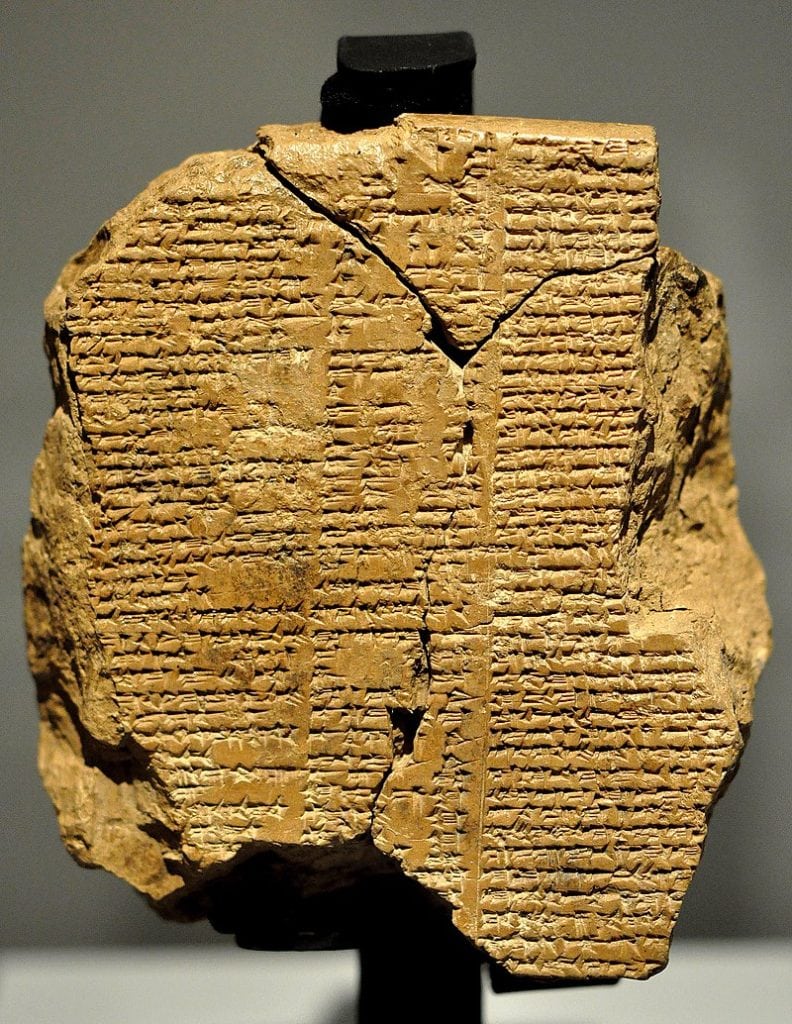
This epic offers an answer to the question of the meaning of life.
When the gods created man they allotted to him death, but
Siduri in “Epic of Gilgamesh” (2100 B.C.)
life they retained in their own keeping. As for you, Gilgamesh, fill your belly with good things; day and night, night and day, dance and be merry, feast and rejoice. Let your clothes be fresh, bathe yourself in water, cherish the little child that holds your hand, and make your wife happy in your embrace; for this too is the lot of man.
In summary: life is short, so live it to the fullest. We find this advice echoed almost verbatim in the Old Testament book of Ecclesiastes:
Go, eat your food with gladness, and drink your wine with a joyful heart, for God has already approved what you do. Always be clothed in white, and always anoint your head with oil. Enjoy life with your wife, whom you love, all the days of this meaningless life that God has given you under the sun—all your meaningless days. For this is your lot in life and in your toilsome labor under the sun.
Book of Ecclesiastes, chapter 9 verses 7-9 (450 – 200 B.C.)
Ancient Persians
The first monotheistic religion originated in ancient Persia 3,000 years ago. It is called Zoroastrianism and it’s still practiced to this day.
Zoroastrianism was the official religion of the First Persian Empire.
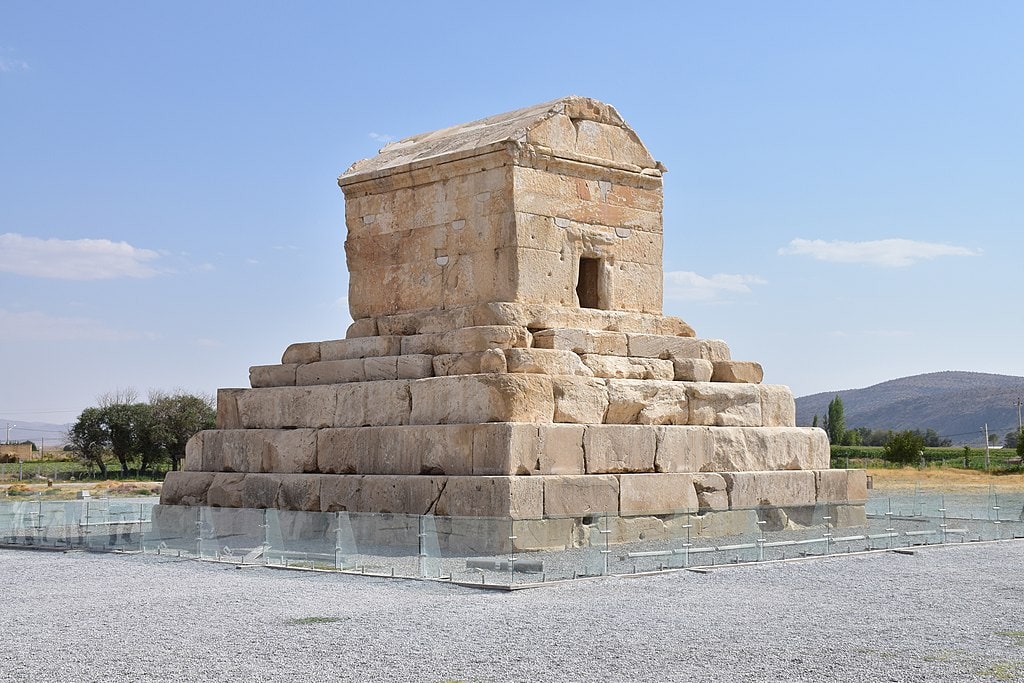
By the fraction of people living in it, the Persian empire was the largest in human history, containing 30 to 50% of the world’s population. It had a significant influence on civilizations and religions that followed.
According to Zoroastrianism, each person participates in the battle between Asha (good, truth, order) and Druj (evil, falsehood, decay).
One’s urvan (soul) is sent to the material world to collect experiences — which are considered useful in the battle between good and evil.
Answers from Religion
Nearly every religion offers answers to the question of life’s meaning. The few that don’t at least provide a prescription for how to live.
Let’s review answers found in some of the world’s religions.
Abrahamic Religions
Abrahamic religions are those formed by descendants of Abraham. They include the religions of Judaism, Christianity, and Islam.
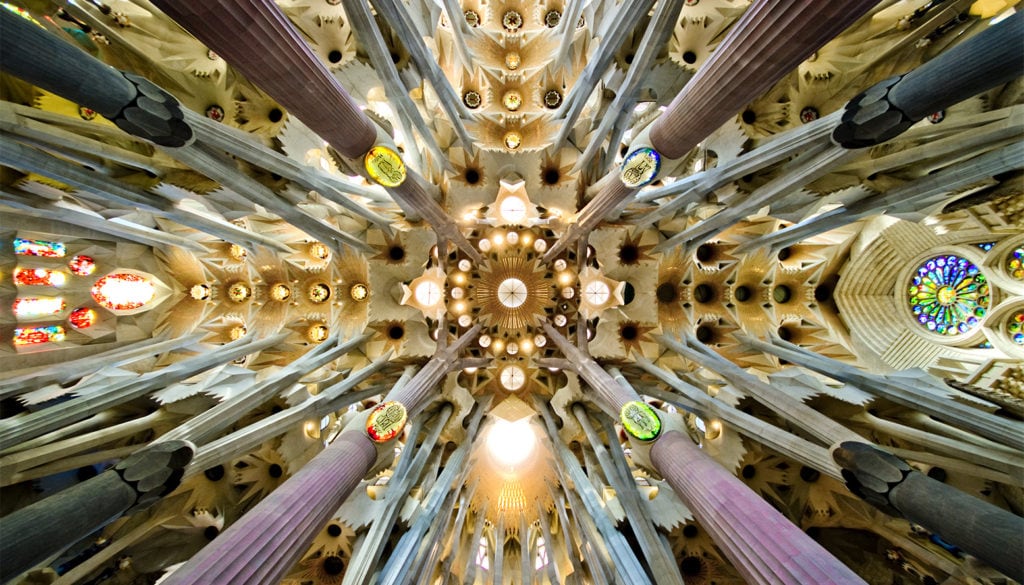
Judaism
According to Judaism, the meaning of life is to heal, repair, and improve the state of the world through good deeds.
The final goal is a perfected world to come.
Christianity
According to Jesus, the most important law in life is to, “Love the Lord your God with all your heart, with all your soul, with all your strength, and with all your mind and to love your neighbor as yourself.”
Mormonism, an offshoot of Christianity, teaches that the purpose of life is to gain experience, develop, and receive a fullness of joy.
Islam
According to Islam, life on Earth is a test that determines one’s closeness to God. Devotion is demonstrated in five ways: profession, prayer, fasting, charity, and pilgrimage. One will either inherit a final home close to God and his love in a paradise, or distant in a hell.
The Prophet Muhammad also expressed a form of the Golden Rule saying, “None of you [truly] believes until he wishes for his brother what he wishes for himself.”
Dharmic Religions
The Dharmic religions are those originating in the Indian subcontinent and include Hinduism, Buddhism and Sikhism.
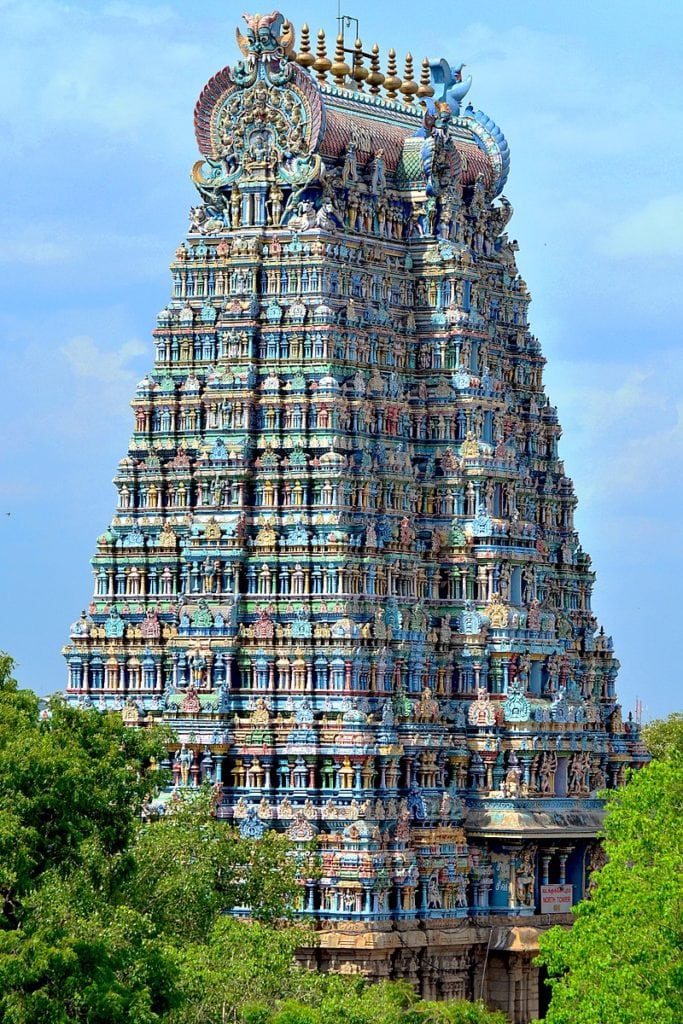
Hinduism
According to Hinduism, there are four aims in life:
- Kāma (desire): sensual pleasure, emotional fulfillment, aesthetic (arts, dance, music, nature) appreciation, enjoyment, love, affection
- Artha (means of living): career, financial security, prosperity
- Dharma (duties): virtue, moral values, ethics, non-violence, order
- Moksha (liberation): freeing oneself from the cycle of reincarnation through enlightenment, self-knowledge, and self-realization
Pursuing each is considered essential so long as no aim is sacrificed.
Hindus believe spiritual development occurs across lifetimes, with the final goal being moksha — a liberation from the cycle of reincarnation known as saṃsāra. This is considered the final aim of all souls.
Buddhism
According to Buddhism, everything is a product of the mind. Therefore, resolving one’s state of mind is the highest goal.
Mind precedes all phenomena, mind matters most, everything is mind-made.
Gautama Buddha in “The Dhammapada” (c. 500 B.C.)
The aim of Buddhists is to follow the Noble Eightfold Path and thereby eliminate suffering and achieve nirvana — the highest happiness.
Sikhism
The word sikh means student. The primary aim for Sikhs is continuous learning and development — for the mind and body to flourish. In the words of the founder of Sikhism:
Your soul, breath of life, mind and body shall blossom forth in lush profusion; this is the true purpose of life.
Guru Nanak in page 47, line 19 of “Guru Granth Sahib” (1604)
Sikhs believe every soul is of divine origin and on a path to develop its divine attributes. Ultimately all souls will merge with The True One.
We shall merge into the One from whom we came. The True One is pervading each and every heart.
Guru Nanak in page 20, line 5 of “Guru Granth Sahib” (1604)
East Asian Religions
East Asian Religions include the traditional Chinese religions of Confucianism and Taoism, as well as the Japanese religion of Shinto.

Confucianism
Confucianism teaches a code of ethics, based on Five Constants: (benevolence, justice, ritual, wisdom, integrity) and Four Virtues: (loyalty, devotion to family, self-control, morality).
Confucius believed these qualities create strong and content families, which in turn creates strong and content communities. The goal is a harmonious society where individuals make better choices, live prosperous and peaceful lives, and minimize suffering.
We can realize the ultimate meaning of life in ordinary human existence.
Tu Wei-Ming in “Confucian Thought” (1985)
Confucius is also known for the earliest telling of a form of the Golden Rule, saying, “What you do not wish for yourself, do not do to others.”
Taoism
There was something formless and perfect before the universe was born. It is serene. Empty. Solitary. Unchanging. Infinite. Eternally present. It is the mother of the universe.
Laozi in chapter 25 of “Tao Te Ching” (c. 600 – 400 B.C.)
For lack of a better name, I call it the Tao.
Taoism rejects the ritual and strict social hierarchy of Confucianism in favor of spontaneity, individualism, and going with the flow.
The foundational text of Taoism is the Tao Te Ching. It teaches, “See the world as your self. Have faith in the way things are. Love the world as your self; then you can care for all things.”
Taoists believe all things were originally Tao — the natural order of the universe — and that ultimately, all beings return to it:
In the beginning was the Tao.
Laozi in chapter 52 of “Tao Te Ching” (c. 600 – 400 B.C.)
All things issue from it;
all things return to it.
Shinto
The Japanese religion of Shinto has no dogmas, scriptures, or founder.
Shinto means the way of the kami. Kami are divine spirits present throughout the natural world. Practitioners seek harmony with and blessings from the kami through offerings and prayers.
According to the author J. W. T. Mason, in Shinto the purpose of humanity is to be a “self-developing creative spirit on earth.” We are the agents by which divine spirits develop greater forms.
Shinto constantly implies through its influence on the Japanese people that the progress of mankind is the intent of divine spirit on earth. Life is purposive to Shinto: a purposive activity of divine spirit seeking new expression in spirit’s own self-created material world. […] Earthly life, to Shinto, is a desired satisfaction for divine spirit; and is a divine actuality in all of its manifestations, good and bad, whereby spirit creates its objective expansion by its own earthly efforts. Divine spirit, ever seeking renewal of creation, ever trying to progress in its material environment and ever striving to develop versatility of action — such is the emphasis Shinto gives to life.
J. W. T. Mason in “The Meaning of Shinto” (1935)
Answers from Philosophy
Consideration of life’s meaning has occupied the minds of history’s greatest thinkers, from Plato to Einstein.
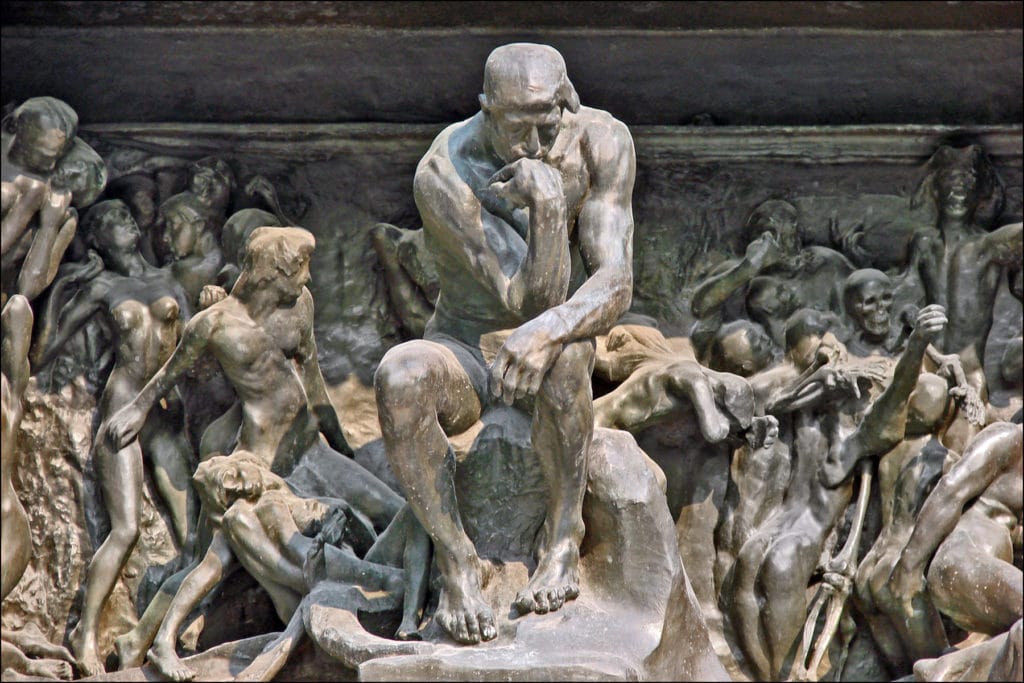
Greek Philosophers
According to Plato’s The Republic (375 B.C.) the purpose of life is the pursuit of knowledge of The Idea of the Good. Plato considered this ideal to be the source of all good things: knowledge, beauty, truth, justice.
Plato’s student, Aristotle, believed the highest aim for humans is eudaimonia — a Greek word embodying happiness and well-being.
What is the highest good in all matters of action? To the name, there is an almost complete agreement; for uneducated and educated alike call it happiness, and make happiness identical with the good life and successful living. They disagree, however, about the meaning of happiness.
Aristotle in “Nicomachean Ethics” NE I.4 (340 B.C.)
Aristotle recognized that happiness means different things to different people, and even to the same person in different times: “after sickness it is health, and in poverty it is wealth; while when they are impressed with the consciousness of their ignorance, they admire most those who say grand things that are above their comprehension.”
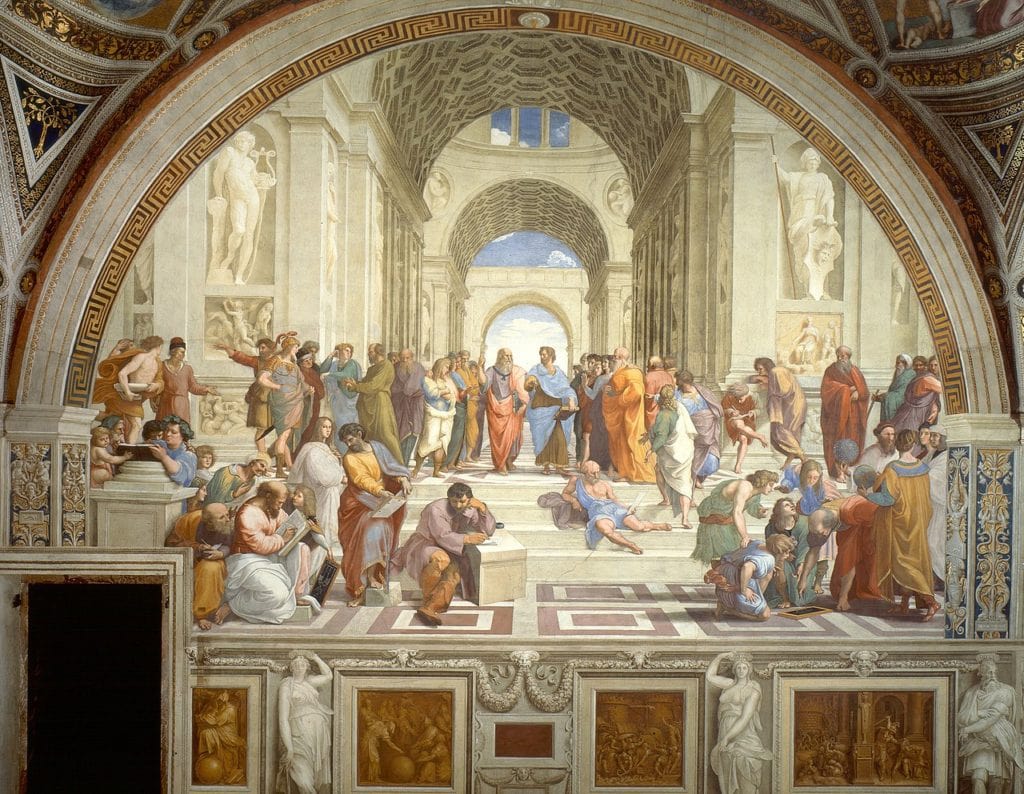
Epicurus believed that intrinsically, pleasure is the only good and pain the only evil. He taught that the best life is free of fear and free of pain.
When we say, then, that pleasure is the end and aim, we do not mean the pleasures of the prodigal or the pleasures of sensuality, as we are understood to do by some through ignorance, prejudice, or willful misrepresentation. By pleasure we mean the absence of pain in the body and of trouble in the soul.
Epicurus in “Letter to Menoeceus” (c. 300 B.C.)
Middle Ages
The 8th century Buddhist monk Śāntideva advocated an effort “to stop all the present and future pain and suffering of all sentient beings, and to bring about all present and future pleasure and happiness.”

Śāntideva wrote the Bodhicaryāvatāra, which is popular in Tibet to this day — the Dalai Lama called it his favorite religious work.
I should dispel the misery of others
Śāntideva in “Bodhicaryāvatāra” VIII. 94 (c. 700 A.D.)
Because it is suffering just like my own,
And I should benefit others
Because they are sentient beings, just like myself.
One of the great works of middle age philosophy is Summa Theologica (Summary of Theology) by the Christian theologian Thomas Aquinas. It remains a cornerstone of Catholic thought and teaching.
Aquinas wrote that perfect happiness cannot be found on Earth, and only comes with a future union with God, the universal good.
It is impossible for any created good to constitute man’s happiness. For happiness is the perfect good, which lulls the appetite altogether; else it would not be the last end, if something yet remained to be desired. Now the object of the will, i.e. of man’s appetite, is the universal good; just as the object of the intellect is the universal true. Hence it is evident that naught can lull man’s will, save the universal good.
Thomas Aquinas in “Summa Theologica” (1485)
Aquinas advocated that on earth man lead a life of virtue, which he defined as having “a good habit, productive of good works.”
Enlightenment
The Enlightenment was marked by the introduction of the scientific method, and a rejection of absolute monarchies. In their place emerged constitutional governments with powers limited by law, supporting individual rights, liberty and religious freedom.
Liberalism
John Locke was one of the greatest influences behind this transition. He is considered the father of classical liberalism — the idea that protecting individual liberty and balancing the rights of individuals across society is the highest aim and mission of government.
Locke’s writings influenced the founders of the United States.

Thomas Jefferson considered Locke (together with Bacon and Newton) to be “the three greatest men that have ever lived.”
In the Declaration of Independence, Jefferson quotes Locke almost verbatim when he wrote that men possess “unalienable Rights, that among these are Life, Liberty and the pursuit of Happiness.”
As Aristotle noticed millennia before, people have different conceptions of happiness. By ensuring individual liberty, each person is free to pursue happiness in the manner they see most fit.
Utilitarianism
The Enlightenment witnessed other rediscoveries of old ideas. Channeling Epicurus, the philosopher Jeremy Bentham wrote:
Nature has placed mankind under the governance of two sovereign masters, pain and pleasure. It is for them alone to point out what we ought to do as well as to determine what we shall do. On the one hand, the standard of right and wrong, on the other the chain of causes and effects, are fastened to their throne.
Jeremy Bentham in “The Principles of Morals and Legislation” (1780)
Bentham referred to the inherent value of either promoting happiness or avoiding unhappiness as utility — which he defined as:
By utility is meant that property in any object, whereby it tends to produce benefit, advantage, pleasure, good, or happiness, (all this in the present case comes to the same thing) or (what comes again to the same thing) to prevent the happening of mischief, pain, evil, or unhappiness to the party whose interest is considered: if that party be the community in general, then the happiness of the community: if a particular individual, then the happiness of that individual.
This view is called utilitarianism. It is the idea that the motivation behind all rightful action is based on maximizing utility.
Modern Times
Before Charles Darwin’s 1859 publication of On the Origin of the Species, the appearance of life and order in nature could only be explained by the existence of some divine plan or design.
Modern philosophies seek meaning in life that arose naturally — some might say accidentally — without a divine purpose, reason or intention.
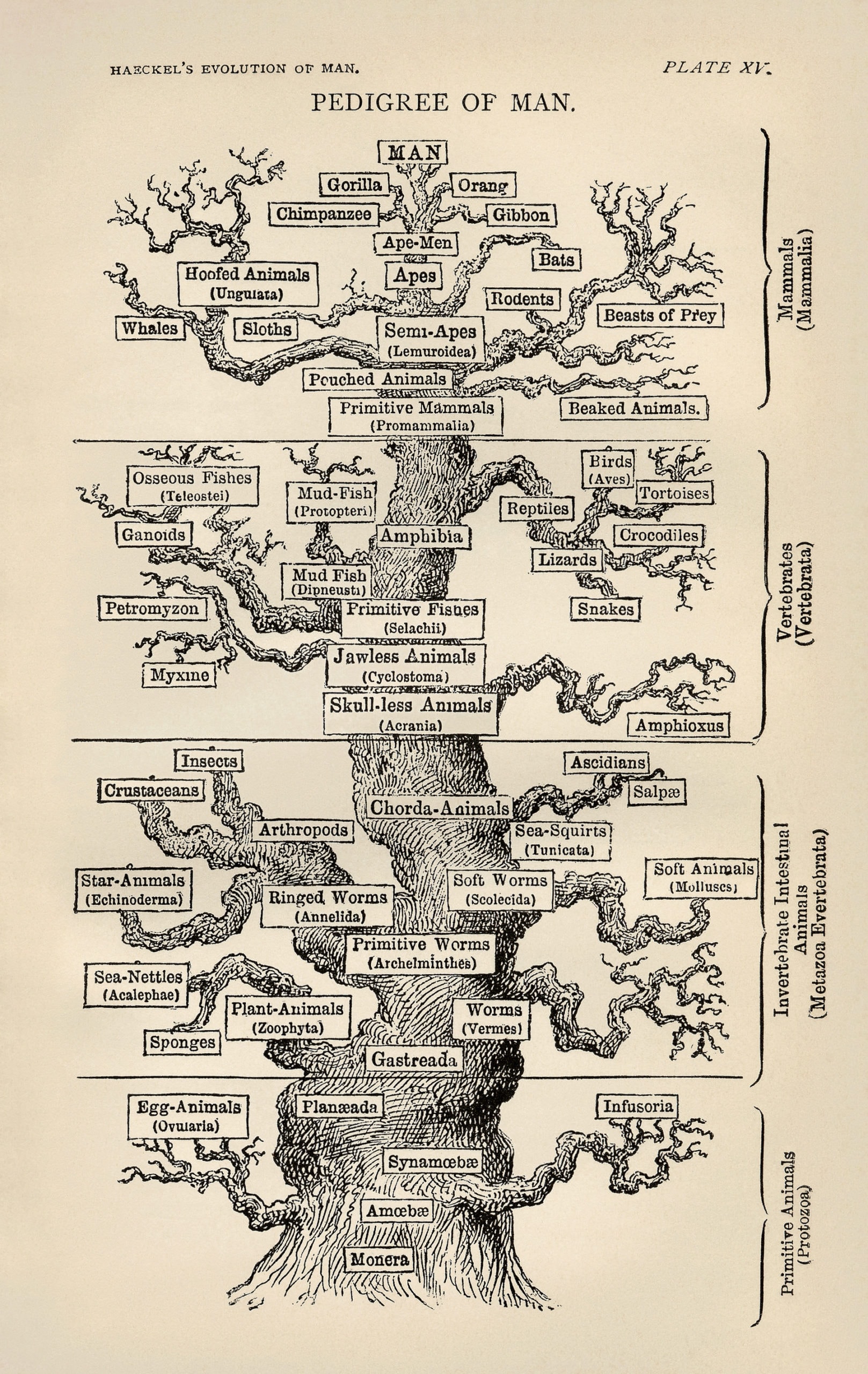
Nihilism
Friedrich Nietzsche believed that the idea that “God is dead” leads to nihilism — a denial that life has any meaning, purpose or value.
A nihilist is a man who judges of the world as it is that it ought not to be, and of the world as it ought to be that it does not exist. According to this view, our existence (action, suffering, willing, feeling) has no meaning
Friedrich Nietzsche in “The Will to Power” (published in 1910)
While nihilism rejects the value of life, materialist and naturalist philosophers reject only a purpose to life.
In Richard Dawkins’s The God Delusion, James Watson, the co-discoverer of DNA, embodied this view when he said, “I don’t think we’re for anything. We’re just the products of evolution.”
Many biologists now believe that if life has any inherent meaning, it rests solely in terms of the propagation and survival of genes.
Einstein, however, rejected the view that life is meaningless:
What is the meaning of human life, or, for that matter, of the life of any creature? To know an answer to this question means to be religious. You ask: Does it make any sense, then, to pose this question? I answer: The man who regards his own life and that of his fellow creatures as meaningless is not merely unhappy but hardly fit for life.
Albert Einstein in “Mein Weltbild (My World View)” (1934)
Humanism
Defying Nietzsche’s prediction, humanism is a non-religious philosophy that recognizes value and purpose in human existence.
Humanism is a progressive philosophy of life that, without supernaturalism, affirms our ability and responsibility to lead ethical lives of personal fulfillment that aspire to the greater good of humanity.
The Third Humanist Manifesto (2003)
[…]
We aim for our fullest possible development and animate our lives with a deep sense of purpose, finding wonder and awe in the joys and beauties of human existence.
Naturalistic Pantheism
Rather than see no meaning in the natural world, naturalistic pantheism finds meaning in all of it. It reveres all life everywhere, as well as the universe and environment that make life possible.
Naturalistic pantheism can be viewed as a broadening of humanism to bring respect for the rights and lives of all creatures.
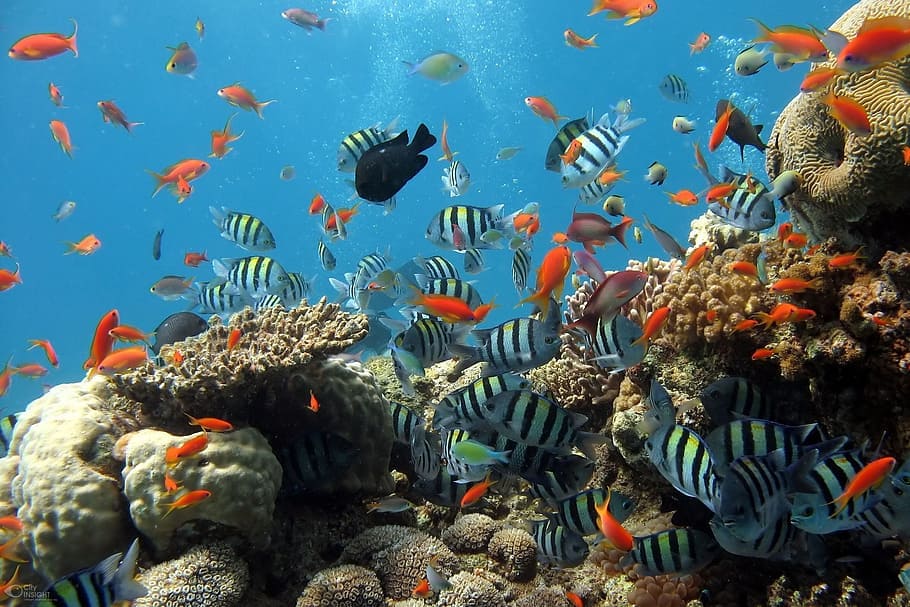
According to this view, the meaning of life is to care for and respect nature, the environment, and all forms of life.
Summary of Answers
On the question of the meaning of life, we’ve reviewed answers from ancient civilizations, world religions, and philosophical traditions.
We’re left with a smattering of answers, with no clear consensus. But despite a lack of consensus, we have noticed common themes:
- Live Virtuously: The ancient Egyptians and Thomas Aquinas say we ought to live a virtuous life, with the promise of a happy and eternal afterlife. Confucianism says virtue leads to a happier and more peaceful life here on Earth. Hinduism considers it a duty (dharma).
- Enjoy Life: The ancient Sumerians say we should eat, drink, and be merry. The Hindus call this kāma, Aristotle called it happiness, Epicurus and Śāntideva called it pleasure. Liberalism recognized self-defined pursuits of happiness. Utilitarianism advocates maximizing happiness.
- Reduce Suffering: This is the primary objective in Buddhism, and also advocated by Śāntideva and Utilitarians. It is implicit in humanism and naturalistic pantheism, whose ethics say we must respect life.
- Develop and Grow: The ancient Persians said the purpose of life is to collect experiences for the fight of good versus evil. Plato said it is to gain knowledge of the good. The Mormons say it to gain experience and develop ourselves to experience the fullness of joy. Sikhism says life’s purpose is to learn and for our soul to blossom forth in lush profusion. Confucianism says we can find meaning in ordinary human experience.
- Improve the World: Judaism says working to build a better world is the primary aim of life. Hinduism recognizes the importance of work (artha). The aim of Confucianism is to fashion a harmonious society. Shinto says humanity’s purpose is to be a self-developing creative spirit on earth. Thomas Aquinas says on earth, our purpose is to be productive of good works. Naturalistic pantheism says to revere the natural environment.
- Love Others: Christianity says to love thy neighbor as yourself, Islam advocates charity and wishing for your brother what you wish for yourself. Confucius says what you do not wish for yourself, do not do to others. Taoism says to see and love the world as yourself. Humanism preaches aspiring to the greater good of humanity.
- Divine Union: Many religions say the final aim of life is to realize a oneness with God or to otherwise reunite or merge with God. Hindus call this moksha. Taoists say all things return to their source. Sikhs say we will merge into the One from whom we came. Thomas Aquinas says perfect happiness exists only in a union with God. Islam says happiness in the afterlife depends on one’s proximity to God.
These purported meanings of life all sound like noble aims. But which, if any, is right? Could there be, as the Hindus say, multiple answers?
All these answers appear to dance around something more fundamental — a common theme. But what unifying principle connects them?
A Unifying Principle
At first glance, the many answers we’ve found to the question of life’s meaning seem quite different. But stepping back, a clear view comes into focus, and we can see the forest for the trees.

Across every answer there is broad agreement on favoring certain paths: in choosing happiness over suffering, pleasure over pain, life over death, saving the world over destroying it, virtue over vice, truth over lies, justice over injustice, beauty over ugliness, order over chaos, proximity to God over distance from God.
All these preferences embody pursuit of what is valued — what we call good. We could say the meaning of life rests in maximizing good: good for oneself, good for others, and good for the world.
But from where does goodness originate? What makes one thing good and another bad? As it happens, there is an object in reality from which all goodness and badness derives. It is also the source of all meaning to all creatures. Without it, there would be no meaning at all.
The Origin of Good
The good is anything useful, valuable, or worthwhile to someone.
Under this definition we can find some good in any technology considered useful, in any item of value people spend money to acquire, or in any human endeavor considered worth doing.
For example, we can say a life saving medicine is useful, houses are valuable, and making art is worthwhile. Why are these things good?
A Supreme Good
2,360 years ago, Aristotle noticed something strange: if you repeatedly ask, why is that thing good?, it leads to a chain of questions and answers.
Oddly, this chain does not continue forever. It always ends at the same place: in something that just is good — a thing good for its own sake.
Every art and every investigation, and likewise every practical pursuit or undertaking, seems to aim at some good: hence it has been well said that the Good is That at which all things aim. […]
Aristotle in “Nicomachean Ethics” (340 B.C.)
But as there are numerous pursuits and arts and sciences, it follows that their ends are correspondingly numerous: for instance, the end of the science of medicine is health, that of the art of shipbuilding a vessel, that of strategy victory, that of domestic economy wealth. […]
If therefore among the ends at which our actions aim there be one which we will for its own sake, while we will the others only for the sake of this, and if we do not choose everything for the sake of something else (which would obviously result in a process ad infinitum, so that all desire would be futile and vain), it is clear that this one ultimate End must be the Good, and indeed the Supreme Good.
What form does this Supreme Good take?
Tracking Down the Supreme Good
Let’s try some examples. We can use the previous examples of medicine, houses, and art, but if Aristotle is right, it works starting from anything good. Try some of your own examples and see.
Example 1: Medicine
- Why is life-saving medicine good?
- Because it saves people’s lives.
- Why is saving people’s lives good?
- Because it allows them to live longer.
- Why is living longer good?
- Because it allows them to have more experiences.
- Why is having more experiences good?
- It just is.
Example 2: Housing
- Why are houses good?
- Because they protect people from the elements.
- Why is protection from the elements good?
- Because it keeps people comfortable and prevents sickness.
- Why is being comfortable and healthy good?
- Because it provides for better experiences.
- Why is having better experiences good?
- It just is.
Example 3: Art
- Why is making art good?
- Because it leads to more art.
- Why is more art good?
- Because it gives people novel perspectives, feelings, and thoughts.
- Why are novel perspectives, feelings, and thoughts good?
- Because it creates more variety of experiences.
- Why is more variety of experiences good?
- It just is.
The Supreme Good Found?
The dictionary defines good as a: “benefit or advantage to someone or something.” According to this definition, a good thing must not only provide some benefit, it must also provide a benefit to someone.
We confirmed this in our examples. Regardless of where we began, each case ends in a “just is” at the point of augmenting experience — thoughts, feelings, perceptions — in other words, consciousness.
Without conscious beings, there would be no someones to receive any benefit. No one would notice, never mind appreciate, any good thing. If not for consciousness, there could be no good.
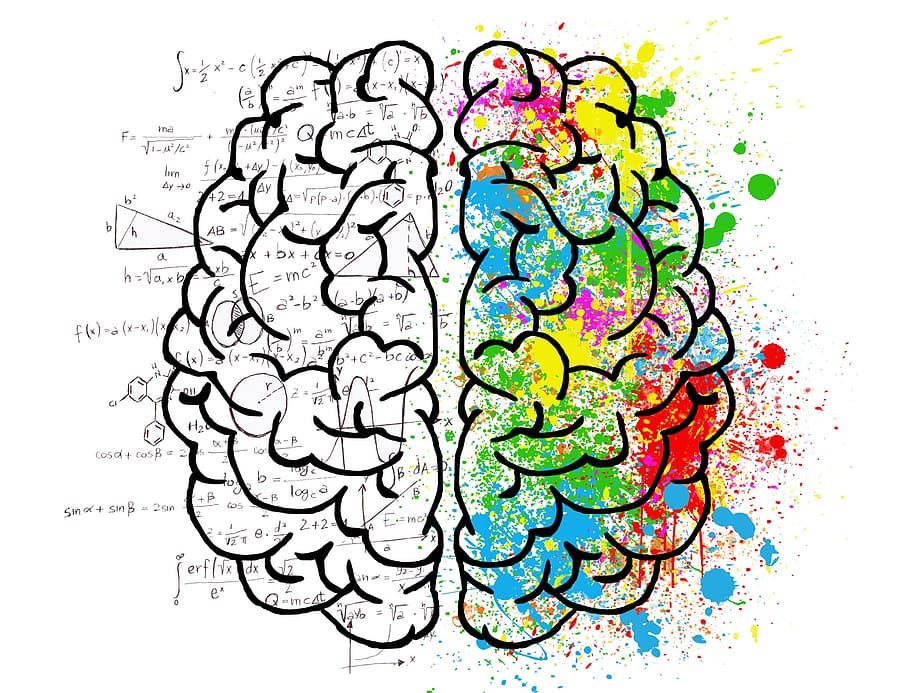
Might conscious experience be the foundation of all value? Is improving states of consciousness the source of all good and rightful action? Is harming consciousness the source of evil and immoral action?
Over the centuries, some philosophers have suspected that mind, sensations, or consciousness are the basis of all good and evil.
For these words of Good, evill, and Contemptible, are ever used with relation to the person that useth them: There being nothing simply and absolutely so; nor any common Rule of Good and evill, to be taken from the nature of the objects themselves; but from the Person of the man or, From the Person that representeth it;
Thomas Hobbes in “Leviathan” (1651)
We have already observed, that moral distinctions depend entirely on certain peculiar sentiments of pain and pleasure, and that whatever mental quality in ourselves or others gives us a satisfaction, by the survey or reflection, is of course virtuous; as every thing of this nature, that gives uneasiness, is vicious.
David Hume in “A Treatise of Human Nature” (1739)
It there appeared that we could not, on reflection, maintain anything to be intrinsically and ultimately good, except in so far as it entered into relation to consciousness of some kind and rendered good and desirable: and thus that the only ultimate Good, or End in itself, must be Goodness or Excellence of Conscious Life.
Henry Sidgwick in “The Methods of Ethics” (1874)
Ultimately, all value derives from conscious experience, for nothing can be felt, enjoyed, appreciated, thought, or known outside of it.
All Good Things
If all good is based on conscious experience, then improving and perfecting states of consciousness, and seeking desirable experiences constitute the meaning, purpose, and value of all conscious life.
But what does it mean to improve conscious experience?
If we discover how to best approach this Supreme Good, it would serve as a focus for all rightful action.
Will not then a knowledge of this Supreme Good be also of great practical importance for the conduct of life? Will it not better enable us to attain our proper object, like archers having a target to aim at?
Aristotle in “Nicomachean Ethics” (340 B.C.)
It’s hard to imagine any knowledge that could be more valuable.
Dimensions of Experience
The purpose of life is to live it, to taste experience to the utmost, to reach out eagerly and without fear for newer and richer experience.
Eleanor Roosevelt
How many ways are there to improve conscious experience?
In our examples, we encountered three. Life saving medicine improved consciousness by extending life and allowing for more experiences. Having shelter increased the quality of experience. Creating art improved the variety of experiences.
Thus there are at least three ways consciousness can improve:
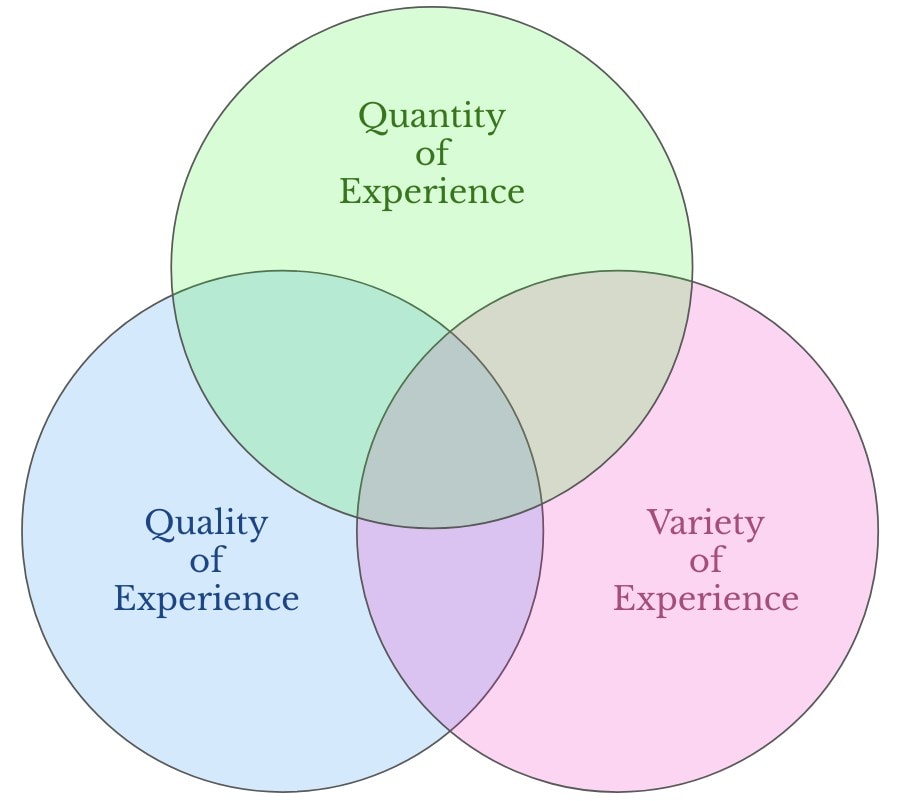
Quantity
“to live it”
One way to improve experience is to create more of them.
That is, to increase the number of experiences, have more of them, live longer, save lives, continue and propagate life, create and support the next and future generations.
As long as the experiences are positive, more is better than fewer. Thus, working to save and preserve life, and to protect the planet that sustains us, are seen as universal goals in service to a universal good.
Quality
“to taste experience to the utmost”
A second way to improve experience is to simply have better ones.
That is, to increase happiness, pleasure, satisfaction, and contentment, or to reduce suffering, pain, displeasure, and anguish.
The creed which accepts as the foundation of morals, Utility, or the Greatest Happiness Principle, holds that actions are right in proportion as they tend to promote happiness, wrong as they tend to produce the reverse of happiness.
John Stuart Mill in “Utilitarianism” (1863)
Increasing happiness and reducing suffering are not only goals held by all, but are considered by some to be the very definition of good.
Variety
“to reach out eagerly and without fear for newer and richer experience“
A third way to improve experience is to have new kinds of them.
That is, to have a wide breadth of experiences, try new things, explore new states of consciousness, learn, develop, grow, increase the ways of thinking, perceiving, and being, to promote a diversity of forms of conscious life, language, arts, culture, and expression.
Variety’s the very spice of life,
William Cowper in “The Task” (1785)
That gives it all its flavour.
Few desire lives of monotony or stagnation. Instead we seek lives of learning and growth, enriched by a diversity of experiences.
Knowing the Meaning of Life
All good comes from increasing the quantity, quality, and variety of life’s experiences. It is the source of all value and motive for all action.
It is the meaning of life.
Great power comes from knowing this ultimate source of value.
Since all value derives from this, this knowledge tells us what things are truly valuable and worthy of pursuit, and which are not.
Since this universal value is the motivation behind all human action, this knowledge helps to better understand and relate to others.
Since it is the source of value behind every useful technology, this knowledge enables us to predict where technology is headed.
Since it is the goal of conscious life, this knowledge tells us of the ultimate destiny of humanity, or for that matter any intelligent race.
Since it is the supreme purpose, this knowledge enables us to live in a manner to get the most and make the most out of our time here.
What Things are Valuable?
To know what is valuable, is to know what is worthy of pursuing, protecting, or fighting for. It tells us how to best spend our limited time, money, and energy to achieve what’s most important in life.
A field called axiology is dedicated to the study of value. It seeks to answer where it comes from and what makes anything valuable.
One of its lessons is that value comes in two forms:
- Intrinsic value – things that are valuable for their own sake
- Instrumental value – ways to achieve things with intrinsic value
Intrinsic Value
In his 1973 work Ethics, the philosopher William Frankena tried to list everything that has intrinsic value. The following is his list:
- Life, consciousness, and activity
- Health and strength
- Pleasures and satisfactions of all or certain kinds
- Happiness, beatitude, contentment, etc.
- Truth
- Knowledge and true opinion of various kinds, understanding, wisdom
- Beauty, harmony, proportion in objects contemplated
- Aesthetic experience
- Morally good dispositions or virtues
- Mutual affection, love, friendship, cooperation
- Just distribution of goods and evils
- Harmony and proportion in one’s own life
- Power and experiences of achievement
- Self-expression
- Freedom
- Peace, security
- Adventure and novelty
- Good reputation, honor, esteem, etc.
All of these serve to improve one or more dimensions of experience:
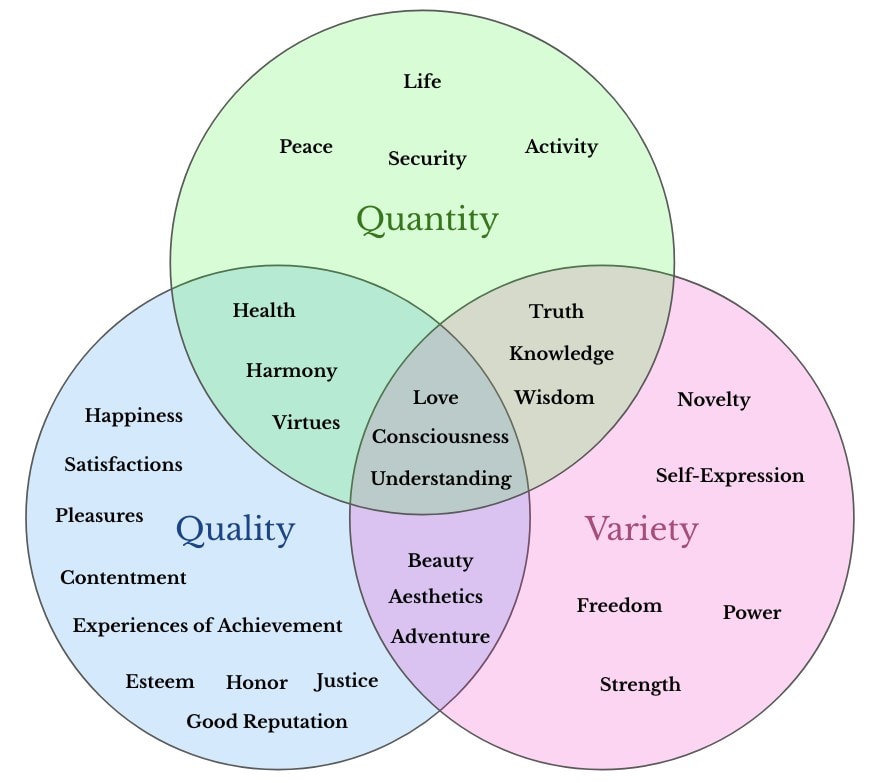
But intrinsic values, and improvements to consciousness are not the only things we value. We also value the means to reach these ends.
All desirable things are desirable either for the pleasure inherent in themselves, or as means to the promotion of pleasure and the prevention of pain.
John Stuart Mill in “Utilitarianism” (1863)
Such means are called instrumentally valuable, for they are instrumental to reaching some end goal which is valuable for itself.
Instrumental Value
Things like food, water, medicine, shelter, and fuel, are not the ends but a means. They serve the purpose of maintaining and supporting conscious life, and so are indirectly valuable to consciousness.
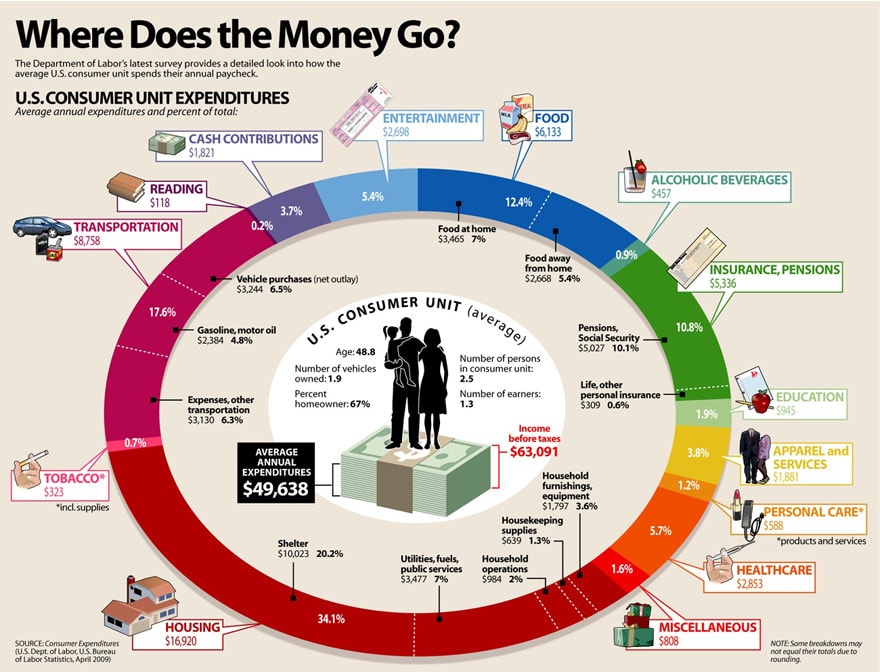
Most money is spent to meet the basic needs of life: food, clothing, shelter, healthcare. Living another day adds to the quantity of experience.
When money’s left over after meeting basic needs, it can be spent to improve the quality of experience and variety of experience: on travel, art, education, entertainment, conveniences, dining, and electronics.
The Value of Life
Consciousness may be the ultimate source of value, but it is by no means the only thing of value. Some things contain either a future potential for consciousness, or play a supporting role for it.

For example, a planet harboring only unconscious single-celled life, or even just the necessary chemicals to later develop life, has value. It is valuable for its potential to develop and host conscious life.
If some misfortune prevented the rise of life on earth. It would represent an incalculable loss of value, for it would have prevented all the life and consciousness that otherwise would have emerged.
Unconscious life on earth is also valuable for its role in the greater ecosystem and food chain on which all conscious life depends.
Common Values
Whether one believes in religion or not, whether one believes in this religion or that religion, we all are seeking something better in life.
The 14th Dalai Lama in “The Art of Happiness” (1998)
It sometimes seems no one can agree on anything. But if there is a universal goal — improving conscious experience — and if this goal is shared by all conscious life, why do people ever disagree on anything?
As we will see, disagreement stems not from disagreement on this universal value, but comes from different assumptions or priorities.
Different Assumptions
Knowing that all people fundamentally want the same thing can lead to a greater understanding of and compassion for others.
The Nun and the Reveler
It’s hard to imagine a greater contrast than that between an ascetic nun and a hedonistic reveler. They seem to differ in their core values.

Here, the appearance of a difference in values is only an illusion.
Both the nun and reveler ultimately want the same thing out of life. Both seek to have maximum joy; to improve their quality of experience.
Where the nun and reveler differ is in their assumptions and strategies.
The reveler operates according to the assumption this may be the only life he gets. His strategy is to maximize pleasure in the here and now.
The nun believes if she lives a life of virtue and devotion to God on earth, she will be rewarded with eternal joy in the next life.
Both strategies are rational given their assumptions. Everyone desires better experiences. We disagree only on the best way to get them.
Planetary Survival
Everyone believes a planet full of life beats a dead or desolate world.
The more conscious life there is, and the longer such life survives in the universe, the greater total quantity of experience is created.
Experience = Population \times Time
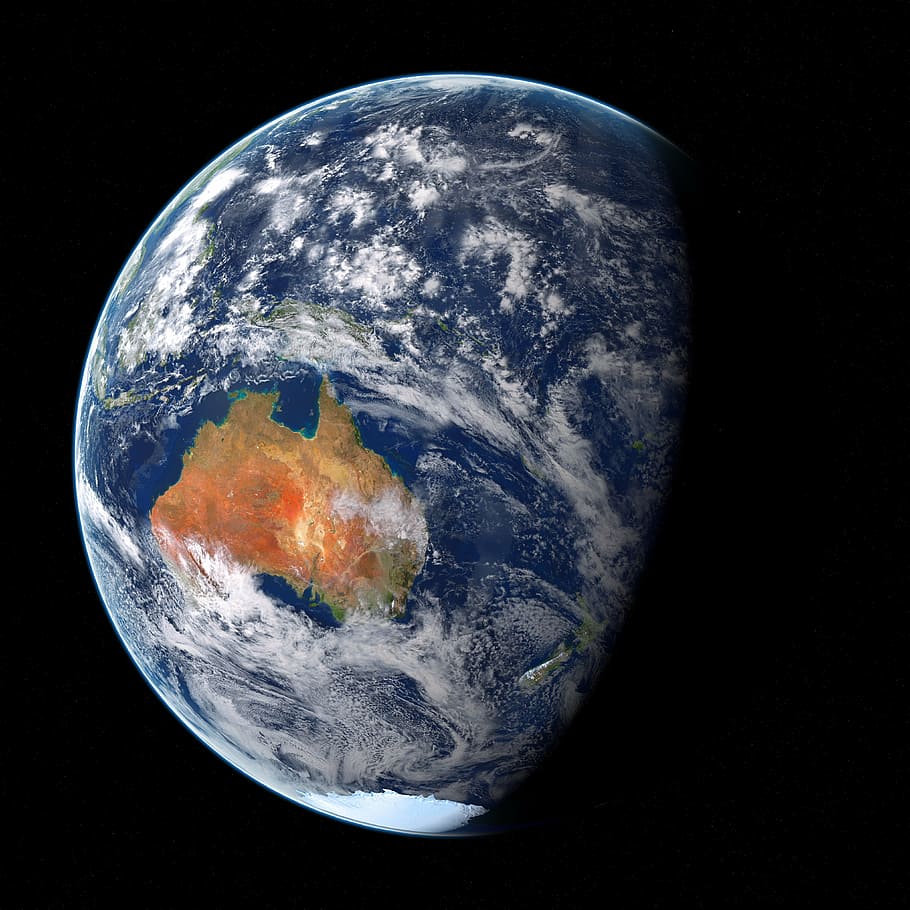
The population of conscious beings, and the time conscious life inhabits earth contribute equally to total experience.
While everyone agrees with the value of maximizing quantity of experience, people disagree on the best strategy for getting there.
Some think the best course is to plan for the long haul, and maximize the time component of the equation while keeping the population at a size that minimizes environmental, or other catastrophic risks.
Others argue maximizing population is better, as we cannot know how future technologies will alter the situation, nor can we know if or when a global catastrophe might wipe out human civilization.

Whether we maintain a population of 1 billion humans that lasts another 1,000 years or 10 billion humans that makes it only another 100, both yield a net gain of a trillion years of human experience.
Given technological trends, it is likely that emerging technologies like mind uploading, space migration, and nanotechnology, will upend long-term predictions and alter the calculus of the optimum strategy. (See: “What are the limits to population growth?” and “Can aging be cured?“)
Much like the nun and reveler, all agree on maximizing life and experience. The disagreement is only on what’s the best strategy.
Different Priorities
Other cases of disagreement occur not from a difference of assumptions or opinions on best strategies, but from a different prioritization of the three dimensions of experience.
Everyone finds value in greater quantity, quality, and variety of experience. But what happens when one comes at the cost of another?
Risk versus Reward
Different personality traits result from different priorities for the dimensions of experience. Risk takers and adrenaline junkies, for example, prioritize quality of experience over quantity of experience.
They’ll risk life and limb for more intense and varied experiences.

Different priorities reveal themselves in perennial debates: freedom vs. safety, quantity vs. quality of life, the new vs. the familiar.
Others, who prioritize quantity of experience, we may call risk averse. They consider skydiving or mountain climbing too risky to ever try.
Of course, there is also risk in being too risk averse, and it is grave: you could die without ever having truly lived.
No Pain, No Gain
To have only pleasurable experiences comes at the cost of knowing the full richness and depth of possible experiences. It represents a prioritization of quality of experience over variety of experience.
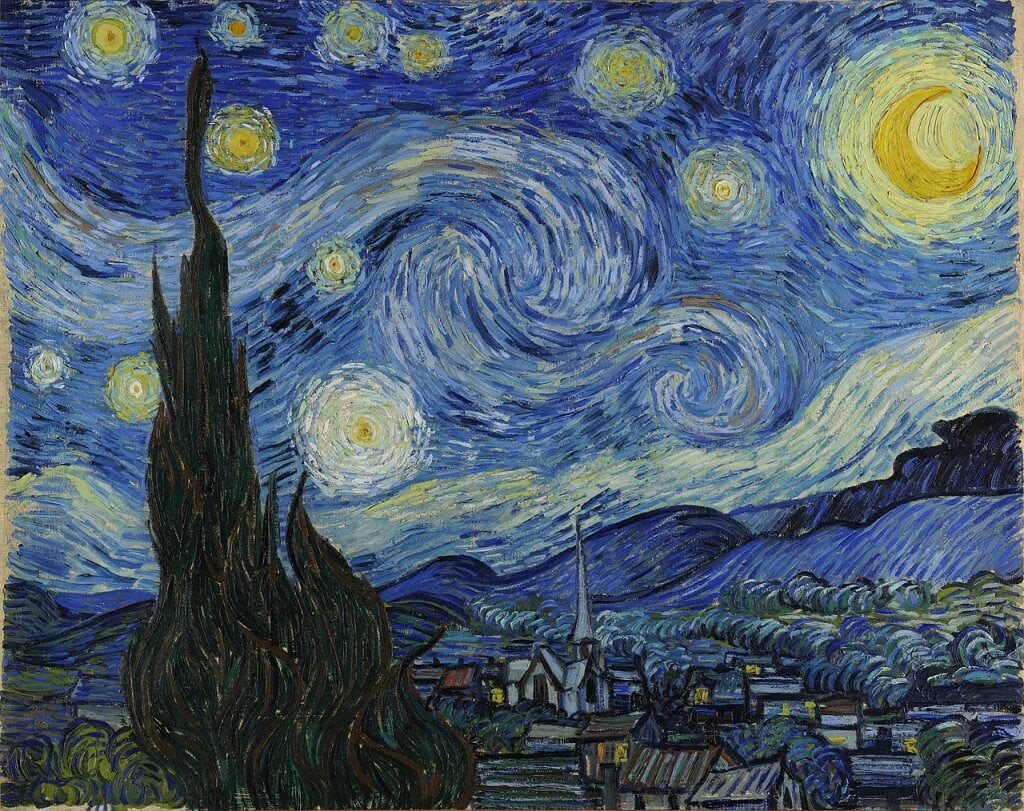
The idea of tortured artists implies certain art requires suffering. If true, then their sacrifice trades quality of experience to yield a greater variety of experience for everyone who appreciates their art.
But perhaps it’s good for one to suffer. Perhaps it’s unavoidable and necessary. Perhaps I ought to thank you. Can an artist do anything if he’s happy? Would he ever want to do anything? What is art, after all, but a protest against the horrible inclemency of life?
Aldous Huxley in “Antic Hay” (1923)
Any time we venture to try something new, we make this trade-off. When we try a new food, we risk finding it distasteful. But it could also become our new favorite. This is the importance of trying new things.
To know suffering is to have a basis of compassion for others. Could we know the plight of the hungry if we’ve never gone without? Could we understand how the sick feel if we’ve never ourselves been ill?
The Direction of Technology
Where is technology headed? Where are we going as a species?
It is impossible to predict future technologies without understanding the motivations that steer the direction of technological development.

To know the universal source of value is to know what all sentient creatures want. To understand that technology serves the needs of conscious experience allows us to glean information about the future direction of technology and contemplate its ultimate end.
While we can’t predict the how of these future technologies, we can predict their why. It will be the same why behind every technology: to improve the quantity, quality, and variety of conscious experience.
Ultimately, technology is about gaining better control over our own experiences. Better technologies provide greater power over the kinds of conscious experiences we can create, enjoy, and share.
Mastering Experience
The technology of painting was perhaps our first step to control the inputs to our senses, and thereby gain some mastery of consciousness.
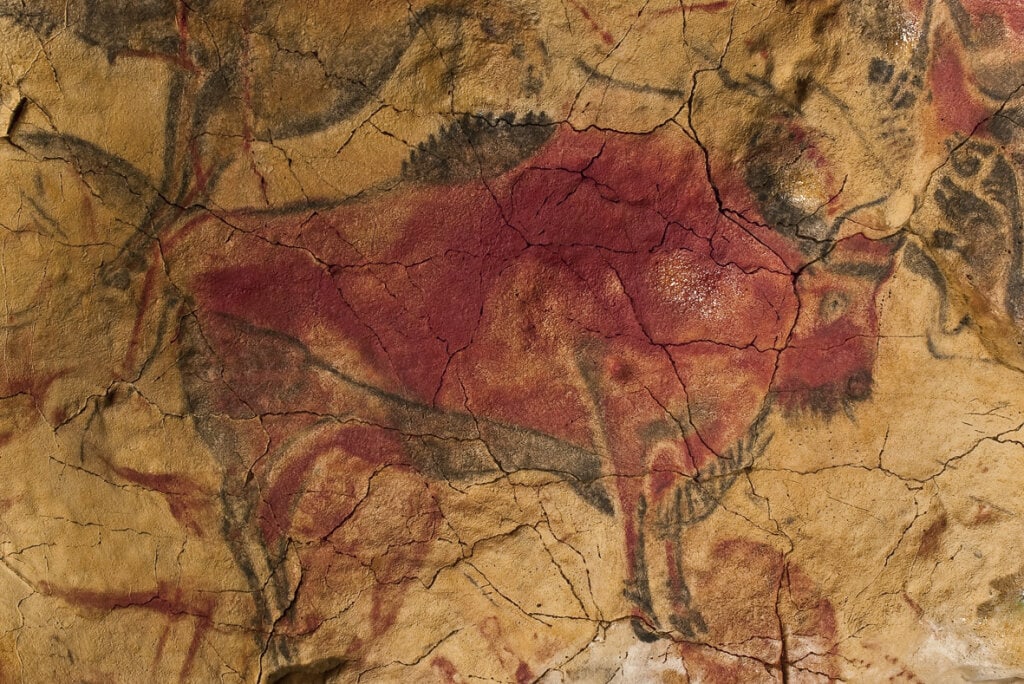
Across eons, the artist behind this painting is affecting the inputs to your senses and altering your present conscious experience.
While artists endeavor to create new experiences for the perceiver, inventors seek out more powerful methods for the artist. Early pigments provided some control over inputs to the eyes and primitive musical instruments enabled novel experiences for the ears.
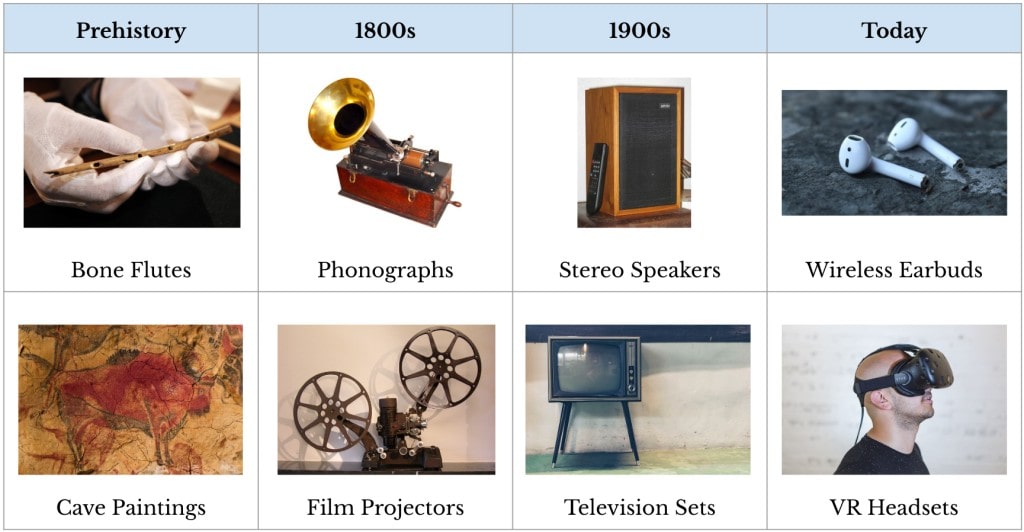
Our first technologies were pitiful: we had limited color palettes of only a few tones, and instruments that played only a few notes.
But with time, we developed techniques for universality: projectors that could display any image, and speakers that could emit any sound.
Fidelity improved to the point of high definition — where our senses can no longer perceive higher quality audio or higher pixel counts.
Virtual reality technology can now achieve immersion, where one’s senses are fooled so thoroughly the brain feels like it’s somewhere else.
We’re presently on the verge of mastering our senses. Complete mastery will allow us to perceive any imaginable experience.
Should we get there, what form might this technology take?
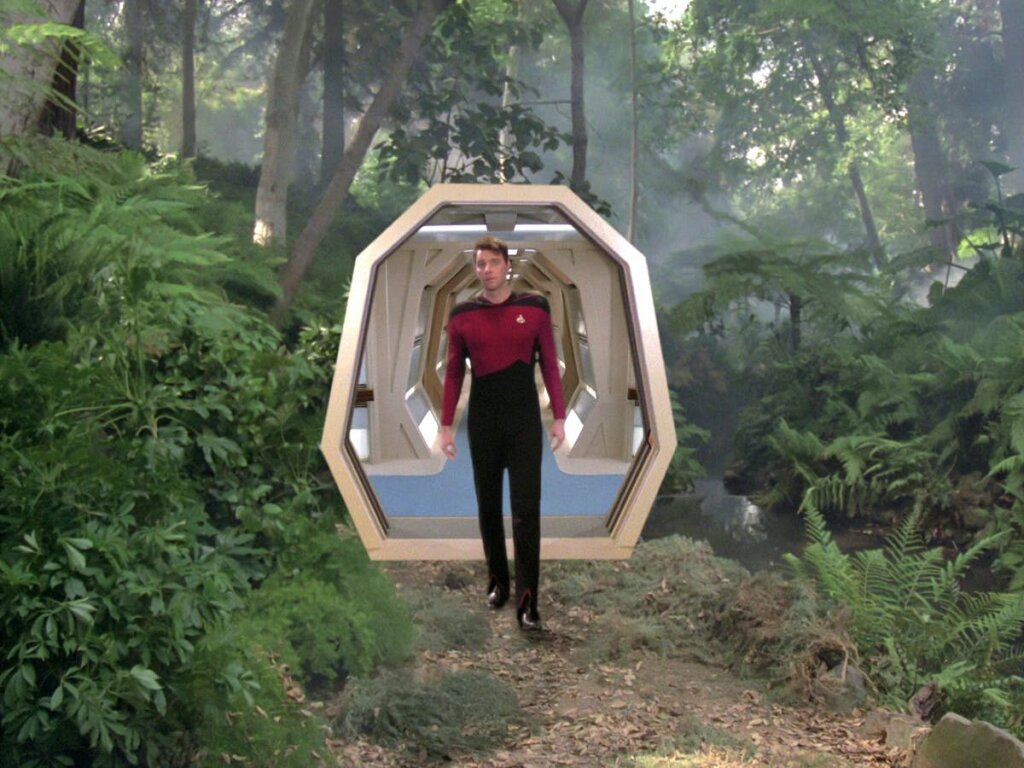
Compared to what’s been imagined, today’s VR technology is limited.
We have to put ourselves in harnesses and omnidirectional treadmills to simulate an experience as mundane as walking. To simulate g-forces requires we toss and turn our bodies around. But there’s a better way.
The Vertebrane system installs shunts into every nerve pathway connecting to your brain. That happens both with sensory nerve fibers heading toward the brain and with a muscle control fibers heading out. Then the Vertebrane system can disconnect your brain from your biological body and connect it to an in-game body in a completely natural and realistic way. Your virtual in-game body is your body as far as your brain is concerned, and your immersion in the game is complete.
Marshall Brain in “The Day You Discard Your Body” (2005)
A computer-linked neural integration could generate any sensation.
You could feel any acceleration, even weightlessness. You could in the virtual reality, jump in the ocean and feel both cold and wet. You could taste, smell and have the experience of swallowing food in VR, and moreover, you could feel full and satisfied afterwards.

Science has made some initial progress with this technology. For example, artificial retinas and bionic limbs can integrate with the nervous system allowing the blind to see and the lame to walk.
As soon as I put my foot on, it took me about 10 minutes to get control of it. I could stand up and just walk away. […] I couldn’t explain it. It was like, I was moving it with my muscles, there was nobody else doing it, the foot was not doing it, I was doing it, so it was really strange and overwhelming.
Gummi Olafsson in interview (2015)
Elon Musk’s company Neuralink seeks to commercialize technologies of brain-computer interfaces. Such interfaces will one day make it possible to have any sensory experience we want — in effect we’ll have the power to create and enter any reality of our choosing.
Such technology is as powerful as the holodecks of science fiction.
Sharing Experiences
Today, YouTube is seen as simply a site for hosting videos. But as our technology to record and control sensory experience advances, sites like YouTube will become Libraries of Experiences.
People will have access not just to videos, but complete sensory experiences: dream vacations, trips to the space station, dining at top restaurants, riding roller coasters, flying in wingsuits, anything.
Today we carry around little recording devices that can capture the experiences of sight and sound and then share them to the world.
In the future, we could use technologies that directly record our own brain activity, and generate shareable files of our own experiences.
It sounds far-fetched, but scientists in Japan have already used brain scanning technology, coupled with AI, to read the content of dreams and extract visual information directly from a subject’s brain.
The ability to record and share experiences will change everything.
Today, tens of millions of dollars are spent to make a Hollywood film, but anyone can see it for the price of a movie ticket. This model is economical precisely because the experience of seeing a movie can be copied and shared at a low cost.
Imagine if the experience of a perfect vacation, or a perfectly prepared meal could be as easily downloaded, enjoyed, and shared.
In such a future, tens of millions of dollars might be spent to create the perfect vacation experience, and moreover, anyone could access it from the comfort of their living room for the price of a movie ticket.
In such a future we might spend a large fraction of our time creating, recording, searching for, discovering, sharing and enjoying content, living in a virtual reality of ideas and experiences.

Perhaps such a life is not so different from how people live today.
Explorers of Consciousness
When technology has rid the world of suffering, disease, and death, what then? What will it all be for, once the struggle to survive is gone?
How will we spend our time?
When everyone has as much quantity of experience as they want, the remaining focus will be on the quality and variety of experience.
Artists, storytellers, and content creators of all kinds will design and share new sensory experiences. They will write and share compelling stories, and you will be able to live the lives of any of the characters.
If technology cures mortality, we could live for millions of years. Then downloading and experiencing a 70-year lifetime represents the same time investment as a 30 minute TV episode. For all you know, your life could be such an experience, one found in a Library of Experiences. (See: “Are we living in a computer simulation?“)
In the short story A Conversation, a member of an advanced alien civilization explains what life is like where he comes from:
We live in the Realm of Possibilities. Here, anything is possible. Anything we can imagine, we can make real, almost effortlessly. So in a sense, we are exploring a universe of imagination, which is much more vast than any physical universe. […] And this is what we explore most of all: We are exploring the potentiality of consciousness.
Douglas S. Jones in “A Conversation” (1996)
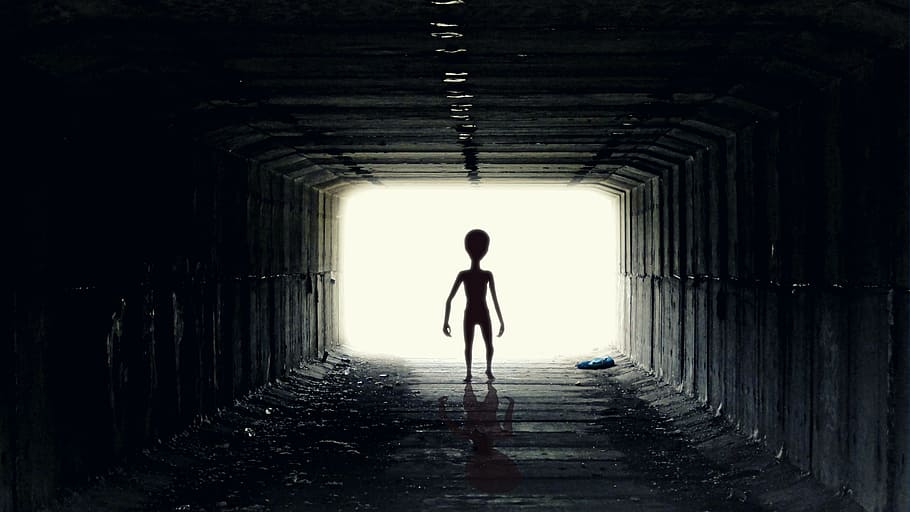
When it comes to exploring the infinite potentiality of possibility, imagination and creativity become the chief commodity.
I am enough of the artist to draw freely upon my imagination. Imagination is more important than knowledge. Knowledge is limited. Imagination encircles the world.
Albert Einstein in “What Life Means to Einstein” (1929)
For such advanced civilizations, imagination rather than physical observation, becomes the primary source of knowledge. For imagination enables creation of new conscious experiences — representing new ways to know, feel, realize, perceive, sense, and be.
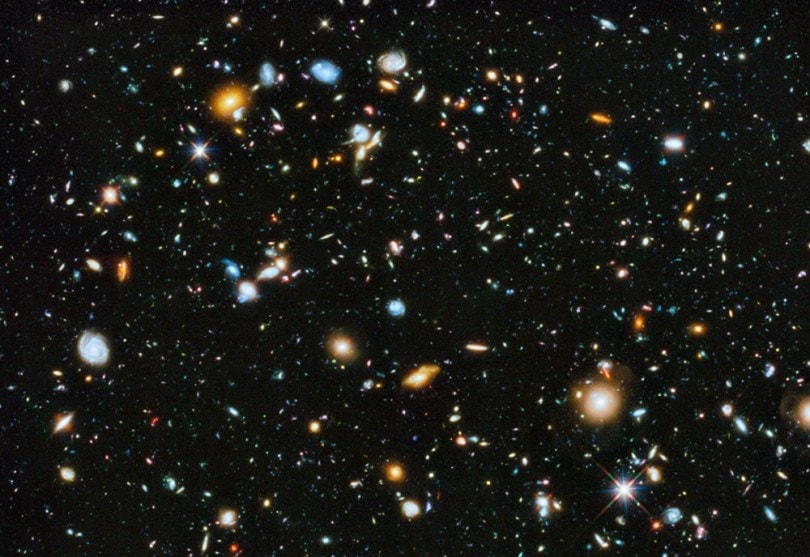
Rather than explore outer-space, our attention would turn inward, to the infinitely richer possibilities that exist in inner-space.
We would become psychonauts — explorers of consciousness itself.
Humanity’s Final Destiny
As a working hypothesis to explain the riddle of our existence, I propose that our universe is the most interesting of all possible universes, and our fate as human beings is to make it so.
Freeman Dyson in “Infinite in all Directions” (1988)
The field of eschatology is concerned with the final events of history and the last destiny of humankind. If we know the direction of future progress, can we guess where history might be when it ends?
The Omega Point
In the 1930s, the Jesuit priest Pierre Teilhard de Chardin wrote in The Phenomenon of Man that humanity, and the universe itself appears to be evolving towards a point of maximum consciousness and creativity.
We have seen and admitted that evolution is an ascent towards consciousness. That is no longer contested even by the most materialistic, or at all events by the most agnostic of humanitarians. Therefore it should culminate forwards in some sort of supreme consciousness.
Pierre Teilhard de Chardin in “The Phenomenon of Man” (1955)
Teilhard de Chardin called this supreme consciousness, this culmination of evolution, the Omega Point.
Similar conclusions have been reached by technologists and physicists:
Evolution moves toward greater complexity, greater elegance, greater knowledge, greater intelligence, greater beauty, greater creativity, greater love. And God has been called all these things, only without any limitation: infinite knowledge, infinite intelligence, infinite beauty, infinite creativity, and infinite love. Evolution does not achieve an infinite level, but as it explodes exponentially, it certainly moves in that direction. So evolution moves inexorably toward our conception of God, albeit never reaching this ideal.
Futurist and inventor Ray Kurzweil in “The Singularity is Near” (2005)
In the final anthropic principle or if anything like an infinite amount of computation taking place is going to be true, which I think is highly plausible one way or another, then the universe is heading towards something that might be called omniscience.
Quantum physicist David Deutsch in “The anthropic universe” (2006)
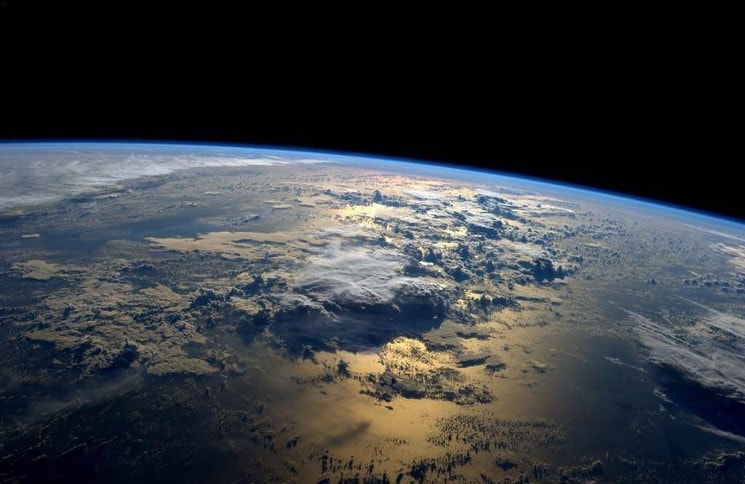
In its present form, this system is extremely wasteful. Only two parts in a billion of the sun’s light reaches Earth. Of the light that gets here, less than 2% is captured by plants. Of the energy captured by plants, even when eaten by humans, only a fifth goes to power the brain.
Future technologies could be much more efficient.
They could recruit ever larger fractions of the matter and energy of the universe towards the production of conscious experience. What is now dead matter will become alive with meaning.
Competitive success will depend more and more on using already available matter and space in ever more refined and useful forms. The process, analogous to the miniaturization that makes today’s computers a trillion times more powerful than the mechanical calculators of the past, will gradually transform all activity from grossly physical homesteading of raw nature, to minimum-energy quantum transactions of computation. The final frontier will be urbanized, ultimately into an arena where every bit of activity is a meaningful computation: the inhabited portion of the universe will [be] transformed into a cyberspace.
Hans Moravec in “Pigs in Cyberspace” (1992)
At the physical limits of computation, one kilogram of matter, appropriately arranged, can perform 10^{50} operations per second. The human brain is estimated to be capable of 10^{18} operations per second.
This means a 1-kilogram mass arranged into the perfect computer, could in one second, simulate 10^{32} seconds (or a trillion trillion years) of human brain activity. This vastly exceeds the total of all experiences had by all humans who have ever lived. (See: “How good can technology get?“)
Should technology ever approach these physical limits of computation we could imagine a single entity that could possess in its memory, trillions of planetary civilizations worth of experience.
Creating such an entity may be the destiny of mankind, or more generally, that of any evolutionary process allowed to master and expand consciousness towards its ultimate limits.
Any cosmology with progress to infinity will necessarily end in God.
Physicist Frank Tipler in “The Physics of Immortality” (1994)
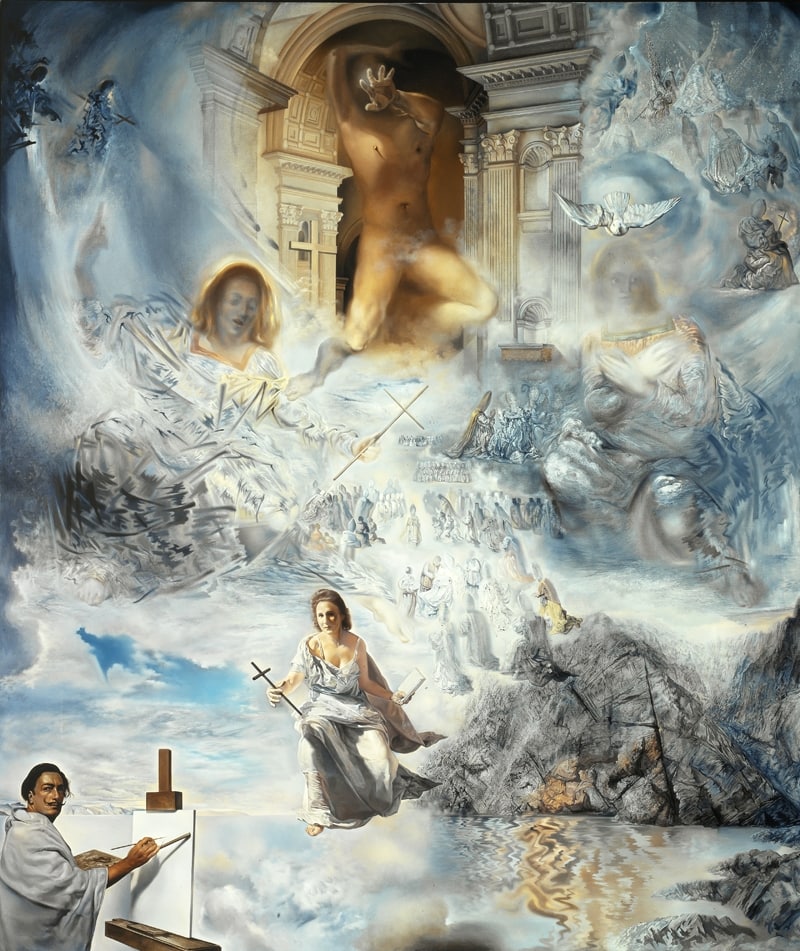
The idea of a final supreme consciousness, perhaps containing the lives, memories and experiences of all beings is reminiscent of the concept of returning to or merging with God as described in Taoism and Sikhism, as well as the writings of Thomas Aquinas.
Now we’re trying to figure out a way to reconverge science and spirituality into this realization that there’s something about life, there’s something about this universe, that is taking us to higher more sublime levels.
John M. Smart in “A.I., Inner Space, and Accelerating Change” (2013)
The End of the Universe
When the first living thing existed, I was there waiting. When the last living thing dies, my job will be finished. I’ll put the chairs on the tables, turn out the lights and lock the universe behind me when I leave.
Neil Gaiman in “The Sandman: Dream Country” (1991)
Should the universe one day end, or the last living thing die, does that mean it was all for nothing? Does an end render all good meaningless?
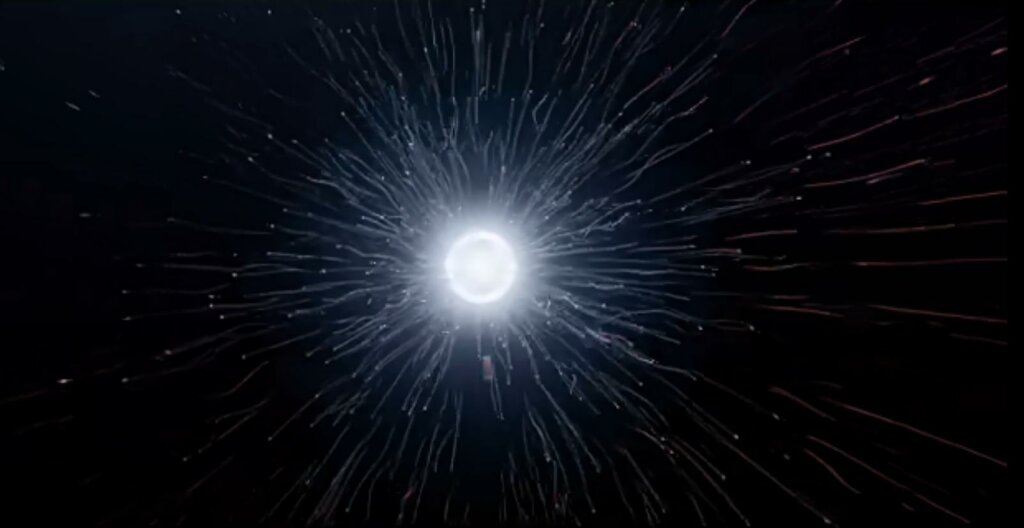 10^{100} years from now, the last black hole will evaporate in a shower of subatomic particles. Will all of existence have been for naught? Image Credit: Timelapse of the future" class="wp-image-4092 webpexpress-processed" srcset="https://cdn.alwaysasking.com/wp-content/uploads/2020/11/Timelapse_of_the_Future_last_scene-1-1024x528.jpg 1024w, https://cdn.alwaysasking.com/wp-content/uploads/2020/11/Timelapse_of_the_Future_last_scene-1-300x155.jpg 300w, https://cdn.alwaysasking.com/wp-content/uploads/2020/11/Timelapse_of_the_Future_last_scene-1-768x396.jpg 768w, https://cdn.alwaysasking.com/wp-content/uploads/2020/11/Timelapse_of_the_Future_last_scene-1-1536x791.jpg 1536w, https://cdn.alwaysasking.com/wp-content/uploads/2020/11/Timelapse_of_the_Future_last_scene-1.jpg 1603w" sizes="auto, (max-width: 1024px) 100vw, 1024px">
10^{100} years from now, the last black hole will evaporate in a shower of subatomic particles. Will all of existence have been for naught? Image Credit: Timelapse of the future" class="wp-image-4092 webpexpress-processed" srcset="https://cdn.alwaysasking.com/wp-content/uploads/2020/11/Timelapse_of_the_Future_last_scene-1-1024x528.jpg 1024w, https://cdn.alwaysasking.com/wp-content/uploads/2020/11/Timelapse_of_the_Future_last_scene-1-300x155.jpg 300w, https://cdn.alwaysasking.com/wp-content/uploads/2020/11/Timelapse_of_the_Future_last_scene-1-768x396.jpg 768w, https://cdn.alwaysasking.com/wp-content/uploads/2020/11/Timelapse_of_the_Future_last_scene-1-1536x791.jpg 1536w, https://cdn.alwaysasking.com/wp-content/uploads/2020/11/Timelapse_of_the_Future_last_scene-1.jpg 1603w" sizes="auto, (max-width: 1024px) 100vw, 1024px">A common refrain in nihilism is that existence is meaningless because one day the universe will end. (See: “How will the world end?“)
But this reasoning doesn’t hold up to scrutiny.
Such logic would lead one to say there’s no point in taking a good job because one day you will quit. The value of the job rests in the pleasures and paychecks along the way, not in the final end.
Similarly, the value of conscious life rests in the experiences enjoyed, felt, and created along the way, whether or not they may one day be forgotten. In the moment, the dinner you enjoyed 1,493 days ago was in no way diminished by the fact you would eventually forget it.
Likewise, the value of your life is not diminished by the final fate of the universe, whatever it might be.
These events will take tens of billions of years or more. Human beings, or our descendants, whoever they might be, can do a great deal of good in tens of billions of years before the cosmos dies.
Carl Sagan in Cosmos episode 10 “The Edge of Forever” (1980)
Moreover, the idea that time passes and the past moments cease to exist is only an illusion according to the physical understanding of time given by Einstein’s relativity. (See: “What is time?“)
There are even some reasons to believe that life can survive the end of the universe. (See: “Can life survive beyond the end of the universe?“)
Making the Most of Life
What good is knowledge if it cannot be applied? What good is knowing the meaning of life if it doesn’t tell us how to live?
All our philosophy is dry as dust if it is not immediately translated into some act of living service.
Mahatma Gandhi in “The Diary of Mahadev Desai” (1932)
If conscious experience is the source of value, then the purpose of life lies in maximizing that value — in maximizing conscious experience.
But how ought we direct ourselves to maximize this value? How do we have the greatest impact on improving conscious experience?
The Path to Happiness
In 1854, the economist Hermann Heinrich Gossen developed the law of diminishing marginal utility. It is the idea that one gets less incremental value from something the more of that thing someone has.
For example, if someone has no car, gaining one makes a big difference to them. But if someone has 10 cars, getting an 11th won’t add as much value to their life. Though Gossen formulated it in mathematical terms, this basic idea has long been understood:
Anyone who has two shirts should share with the one who has none, and anyone who has food should do the same.
John the Baptist in “Luke 3:11” (85 A.D.)
While value diminishes as one person accumulates an excess, the reverse is also true. When someone with an excess shares with those who have less, then total value increases.
This is because sharing an extra shirt with a person who had none helps them more than the person giving up an extra shirt loses.
In The Art of Happiness, the Dali Lama said, “I believe that the very purpose of our life is to seek happiness.” While happiness is the goal, he concluded the best way to achieve it was through helping others.

I believe that the proper utilization of time is this: if you can, serve other people, other sentient beings. If not, at least refrain from harming them.
The 14th Dalai Lama in “The Art of Happiness” (1998)
The search for the most effective and efficient manners of helping others has recently become a science, called effective altruism. It aims to find interventions with the greatest return in terms of benefit to others.
Love
When both myself and others
Śāntideva in “Bodhicaryāvatāra” VIII. 95 (c. 700 A.D.)
Are similar in that we wish to be happy,
What is so special about me?
Why do I strive for my happiness alone?
We identified the meaning of life with pursuit of the Supreme Good.
The value of the Supreme Good comes from consciousness itself: all positive value derives from benefits to conscious experience. Either in having more experiences, better quality experiences, or a greater variety of experiences. But good is not limited to helping oneself.
Happiness cannot be pursued; it must ensue, and it only does so as the unintended side effect of one’s personal dedication to a cause greater than oneself or as the by-product of one’s surrender to a person other than oneself.
Viktor Frankl in “Man’s Search for Meaning” (1946)
From this we can conclude that ultimate meaning and purpose may be found in acts of service which benefit of others. To pursue the Supreme Good is to seek good for all conscious beings.
Moreover, experiences are most meaningful when they are shared.

To make the most of life, seek the good for all: good for oneself, good for others, and good for the world. Seek to benefit all conscious beings and attempt to maximize the richness of life.
Boiled down to one word, the meaning of life is love.




I suspect that the purpose of our species is diff than the purpose of each of our lives. The purpose of our species is probably to build machine intelligences to reformulate, or quicken, the Milky Way galaxy and beyond. For our own purpose, it’s possible that’s it’s to assist somebody else. I have zero ideas on who or how, it simply seems emotionally that it’s true. Maybe just one person, but possibly more than one I guess. On God (You know he doesn’t like to be called that!), I’d go with the Boltzmann Brain conjecture because it makes sense, in a cause and effect way. It was upgraded about 20 years ago, as a speculation, by physicists Andreas Albrecht and Leonard Susskind in a couple of papers each of the did.
Hi Mitch,
I agree that as it pertains to the direct and immediate purposes, there are often differences between the individual and civilization aims. However, when it comes to the ultimate goal (to pursue and realize more states of consciousness), are they different?
I am very interested and curious now to read the papers by Albrecht and Susskind that you reference. Do you happen to recall their titles?
Jason
Thank you for writing this
Really thank you
Hi Abdullah,
You’re most welcome!
One more great job from you! Thank for your pen and knowledges! Very long article but it is not boring. You have chosen very hard and comprehensive topic. Like what is the happiness? What is the meaning of life? The answer is larger than life! Maybe the meaning of life is get the reward of your hard work! But l have still some questions with out answer! Thank you indeed. Looking for your new articles.
Hi Semih, thank you! I am working on another big one now. It should be out shortly.
l appreciate reading new one. Thank you.
Really dip. is the new article out yet??? This one was really helpful. Synchronizes with everything human. Thank you.
Hi King,
Thank you. I am busily working on the next article, but it is a big one and is taking some time. If you want to know as soon as it is available, you can subscribe to the e-mail list. Then you will be notified whenever new articles are published. Take care.
Hi Jason,
l really appriciate if you let me take some quotes of your article. Thanks and regards.
Hi Semih,
Sure thing. You’re welcome to quote the article.
The research is apt. Thank you for providing it for public consumption.
Hi Anundu, thank you! I am glad you liked it.
Hi Jason,
Thanks for sharing your knowledge and your researches with the Web!
While I share most of your thesis and your analysis, I have found other views on the online book Anandayana, which goes in details and technical explanations of some of topics discussed on your webpage.
Have you read it? if so, what’s your opinion about it
Hi Andres,
You’re most welcome! I’m glad you enjoyed it. I was not familiar with that book, I appreciate you sharing it with me. I’ll check it out. Thank you!
It’s super
Hi Ezbon, thank you!
As always, great detailed stuff.
Morality is about self interest. What is the meaning of life? Problem solving. In all we do, we gather, process, and pass on information to be gathered and processed and passed on again. Even in procreation. Survival means meeting needs. Everything/everyone has needs. Most are common. But desires are treated as needs as well. We all have slightly to vastly different wills. Interaction can cause conflicts. A resolution is demanded.
It is in our personal best interest to keep the peace. It’s also in everyone elses best interest. We all have the same basic needs: We want freedom, security and prosperity. We can’t have any of that if we’re constantly at war with each other. So problem solving is the key to the best life we can have.
If others feel oppressed, theirs trouble ahead. Giving people the right to be who they are, be it male, female, black, white, gay, straight trans or what ever, calms things down and makes more people happy, except those who believe they have the force others to do things the way want.
Well, they can do things the way they want, but they have no right to tell others how to feel or act, as long as those personal actions don’t harm others. That’s the price of freedom. You give up the right to take it away from others. It’s a trade off. I let you be you, you let me be me.
When inventing something, everything has to already be in place. You can’t invent a phone unless someone invents wires, a speaker a microphone and discovers electricity etc. Once all is in place plus the desire for it, it practically invents itself. So it was with the phone; invented independantly around the world by at least 4 people within days of each other. Bell wasn’t the first. Only the first to patent it.
So everything is built on the backs of others that came before. Thus we gather, process and pass on information. The meaning of life is conflict resolution.
Hi Ron,
Thank you! I must say it’s an honor to have one of the founders of the World Pantheistic Movement comment on this article.
I largely agree with your opinion on morality. I would say that ultimately morality of an action derives from the collective interests (utility) of individuals who suffer or benefit as a result of said action. It’s also a utilitarian viewpoint that can be difficult to implement in practice, which may explain why we often have to make do with heuristic rules.
I think you raise a valid point regarding the inevitably of technological inventions and progession. I have come to view technological advances almost as a force of nature, operating beyond our direction and control.
Thank you for information
Hi Dinesh,
I am glad you liked it!
Very informative and helpful. Thanks for sharing.
Hi Muhammad Hizbullah,
Thank you! I am glad you appreciated the article. 🙂
Hello Jason!
I just would like to know what do you think about this comment I did on Melbourne Lacanian about the characteristics of Neoliberalism as a form of Fascism:
“Hello David!
Well, I was thinking here about Neoliberalism as a form of Fascism, and here I just decided to post some of the characteristics of neoliberalism as fascism based on Umberto Eco’s characteristics of Fascism. Feel free for add more characteristics and/or fix it if you want to:
1- The cult of culture. The replacement of “race” by “culture”. The replacement of “race” and “blood” by “culture” and “language”.
2- The rejection of postmodernism and embracement of Neopositivism.
3- The cult of action for action’s sake disguised of “truth/fact Vs lies/misinformation/bullshit”.
4- Disagreement is treason. You can’t disagree with capitalism/neoliberalism while you participate of it.
5- Fear of what’s outside the Overton window and outside the status-quo.
6- Appeal to social frustration and to “where there is a will there is a way”.
7- The obsession with a plot against the status-quo.
8- The enemy is both strong and weak.
9- Fake pacifism and advocacy for reverse campism.
10- Contemp for the weak and for the poor. The idea people are weak and poor because they want to.
11- Everybody is educated to protect neoliberalism and the status-quo. And everything that disagrees with it is “bullshit”, “pseudoscience”, “marijuana”, “misinformation”, “fake news”, “nonsense”, “idiocy”, “pseudophilosophy”, “gibberish”,, “mumbojumbo”, “conspiracy theory”, “Russian Propaganda”, “Chinese Propaganda”, “Hamas Propaganda” etc.
12- Wokeism (Pink washing) and weaponry.
13- Selective populism.
14- Newspeak (political correctness and speech politics).
15- Democratic Authoritarianism. Authoritarianism with elections and multiparty system.
16- Democratic Totalitarianism. Totalitarianism with elections and multiparty system.
17- The cult of military. Democratic militarism.
18- The cult of the authorities.
19- The fetish for handcuffs, booking, arrest, jail, prison, court, law, and justice.
20- The idea capitalists and the Bourgeoisie deserve the place where they are because of meritocracy.
I think that’s enough for now. Feel free to write your thoughts on these as well.
I tried to write the maximum as I could, I think 20 characteristics are more than enough for now.”